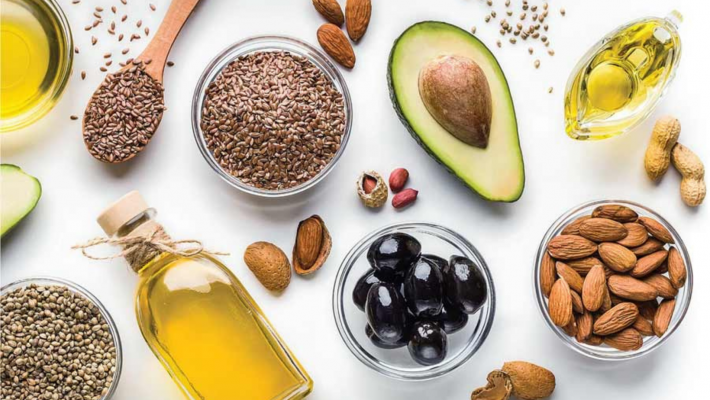Fats are one of the three main groups of macronutrients in the human diet alongside protein and carbohydrates. Good fats provide energy for the body, bad fats cause the body to produce some health problems. What types of fats do cashews contain, and why are they good for heart health? Find out in this article too!
What is fat?
Fats are a type of lipid, they are composed of groups of nutrients namely stored fats (triglycerides) and structural fats (phospholipids). Fat plays an important role in metabolism and is a source of energy for the body.
According to studies, 1 gram of fat provides about 9Kcal for the body. Fats are also solvents that help dissolve vitamin E and other vitamins.
1.1 How bad is bad fat?
Bad fat, also known as saturated fat, is found in vegetable fat and dairy products such as ice cream, cheese, etc. Saturated fat produces cholesterol, increasing the risk of cardiovascular disease.

1.2 Good fats include which group?
Good fats are unsaturated fats, they exist in two forms: monounsaturated fats, and polyunsaturated fats. Omega-3 and Omega-6 are the two typical forms of unsaturated fats. They are abundant in seafood, vegetables, plants, and nuts.

How much fat does the average person need per day?
Depending on your age, your daily fat intake will vary. On average, each day we should only add 20-25% fat according to the energy needs of the body.
- For infants, the need for additional fat at this stage is not necessary. Because this is the period when the baby is completely supplemented with breast milk.
- For children from 1 to 2 years old: the need for a large amount of fat because fat accounts for about 30-35% of the total energy of the baby’s diet.
- For children from 6 to 12 years old: The fat requirement is 40% of energy per serving. It is important to pay attention to the balance between animal fats and vegetable fats for babies.
- For adults: the diet should have about 30 grams of fat, most of which is a good fat to ensure health.
Effects of fat in cashews:
According to the United States Department of Agriculture (USDA), 28.35 grams of cashews contain 43.8 grams of good fats. More than 82% of the fat in cashews is unsaturated fat, containing only low amounts of saturated fat (about 7.8 grams).

3.1: What are the effects of Omega-3 fats?
Omega-3 is a form of unsaturated fatty acid needed for the body’s growth. They have the effect of preventing cardiovascular diseases such as stroke, and myocardial infarction … In addition, Omega-3 also works:
- Enhance the baby’s eye and brain development in the first 6 months, promote brain development, and strengthen the baby’s immune system.
- For adults, Omega-3 is good in reducing pain and stiffness in people with osteoarthritis.
- Prevents Cancer: Studies have shown that an adequate intake of Omega-3 reduces the risk of bowel cancer by 55% for the general population.
- In addition, they also help prevent premature aging in women.
Omega-3s are abundant in seafood such as salmon, herring, and mackerel. In green leafy vegetables, nutritious nuts: are cashews, almonds…, and legumes.
3.2 What are the effects of Omega-6 fats?
- Promotes brain development of children: Omega-6 is necessary for children’s memory and learning process.
- Reduces Symptoms of Attention Deficit Hyperactivity Disorder (ADHD): Scientific studies have shown that children with ADHD will reduce their symptoms by 25% if they are supplemented with Omega-6 daily, after 6 months of this condition. recorded improvement was 47%.

Learn about the effects of cashews on heart health.
According to the National Institute of Nutrition, lean heart disease is closely related to the amount of fat in the body in the daily diet. The higher the fat intake, the higher the risk of death from a heart attack.
However, the fats in cashews are unsaturated fats, which reduce the risk of atherosclerosis by 37% (according to a study by the British Journal of Nutrition) and reduce the risk of cardiovascular disease (according to a study by the British Journal of Nutrition) FDA recommended).
- The cleric acid in cashews helps to reduce the amount of bad LDL (bad cholesterol) and increase the amount of HDL (good cholesterol) good for health.
- The effects of Omega-3 also help prevent arrhythmias, and ventricular fibrillation or reduce blood clots. In addition, they help regulate blood pressure. Omega-3s derived from plants and cashews have a positive effect on the cardiovascular system.
To protect heart health, we need to understand the types of good fats and bad fats in our daily food. Build a healthy diet with nutritious seeds and other foods, ensuring adequate nutrients and a healthy body.


 Tiếng Việt
Tiếng Việt
